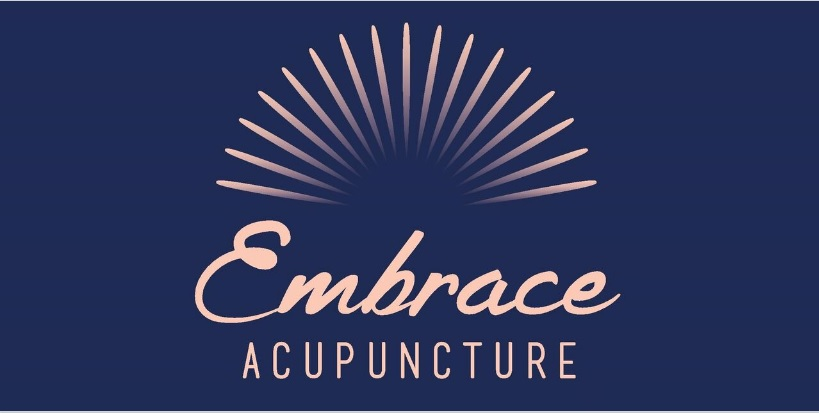Can low Vitamin D affect your Fertility?
*Updated March 2025
Did you know that up to 50% of Australians have insufficient Vitamin D levels? This deficiency is particularly concerning for those trying to conceive, as Vitamin D plays a vital role in reproductive health. Whether you’re on a natural fertility journey or undergoing IVF, ensuring optimal Vitamin D levels could significantly impact your chances of conception and a healthy pregnancy.
At Embrace Acupuncture, we take an integrative, research-backed approach to fertility care, combining Acupuncture, Chinese Herbal Medicine, and modern nutritional insights to support your reproductive health.
See more here on how we work with Acupuncture for Fertility.
What does Vitamin D do?
Vitamin D isn’t just for strong bones! It has far-reaching effects on the body, including:
✔ Bone health – Helps calcium absorption to maintain strong bones.
✔ Mood regulation – Deficiency is linked to depression and mood disorders.
✔ Immune system support – A well-regulated immune system is essential for fertility and pregnancy and Vitamin D reduces pregnancy loss risks.
Vitamin D and Fertility – What the Research Says
Your immune system plays a key role in conception and pregnancy. When overactive, it can increase the risk of miscarriage and early pregnancy loss. Vitamin D helps regulate this balance, particularly through T-cells, which are involved in immune function and autoimmune conditions.
Key Research Findings:
📌 Higher Vitamin D levels = Better pregnancy outcomes A 2018 study of over 1,000 women found that those with Vitamin D levels above 75 nmol/L had a higher chance of pregnancy and live birth.
📌 Preconception levels matter The same study found that correcting Vitamin D levels before conception (rather than during pregnancy) was associated with fewer pregnancy losses.
📌 Improved IVF success Research from Curtin University (WA) found that women with Vitamin D deficiency were less likely to develop mature eggs and had poorer embryo quality.
📌 Reduced pregnancy complications A 2019 Cochrane review of over 3,000 women concluded that Vitamin D supplementation reduces the risk of pre-eclampsia, gestational diabetes, and low birth weight.
📌 Why This Matters for Your Fertility Having sufficient Vitamin D levels is associated with:
✔ Better quality eggs
✔ More embryos
✔ Increased likelihood of falling pregnant and giving birth
✔ Lower risk of pregnancy complications
It’s clear how essential it is to maintain optimal levels for your fertility journey!
My doctor wasn’t concerned, so why should I be?
In this 2018 study of over 1000 women, researchers found those with sufficient Vitamin D levels (above 75nmol/L) were associated with an increased likelihood of pregnancy and live birth.
Interestingly, those in the study who corrected their Vit D levels BEFORE conception vs whilst pregnant were associated with less pregnancy loss.
This study from Curtin Uni in WA found that vitamin D levels affected IVF success rates. Those with Vit D deficiency were "less likely to develop mature eggs and would produce poor quality embryos". This makes sense too, as we shared last week, low Vit D levels affect your AMH levels.
The 2019 Cochrane review of 22 trials of over 3000 women found "supplementation with vitamin D alone during pregnancy probably reduces the risk of pre-eclampsia, gestational diabetes, and the risk of having a baby with low birthweight compared to placebo or no intervention"
Having Vit D levels above 75nmol/L is associated with:
better quality eggs
more embryo's
increased likelihood of falling pregnant and giving birth
associated with less risk factors in pregnancy
it’s pretty clear how important it is to have really good levels!!
What Should You Do Next?
✔ Get tested – Some people need a little Vitamin D, some people need a lot. Either see your GP for an easy blood test or get it done privately with no appointment needed.
✔ Know your numbers – Make sure your levels are well above 75 nmol/L—ideally between 100-250 nmol/L for fertility and pregnancy. The reference ranges on your blood test are general and include everyone (like 70-year-old men!), so they may not reflect optimal fertility levels.
✔ Re-test in 8-12 weeks – This is BEYOND important! If you’re supplementing or making changes, follow up with a test to ensure your levels are improving.
✔ Get some sunshine! – There are apps that track if you’ve had enough sun exposure based on your geographical location and skin type. If you’re worried about overexposure, balance this info with the Cancer Council’s recommendations. In Melbourne during winter, you’re unlikely to get enough Vitamin D from the sun alone, so supplementation is often necessary.
✔ Use the right tools – To help monitor UV exposure and maintain optimal Vitamin D levels, consider using the SunSmart Global UV app. This free app, developed in collaboration with leading health organisations, provides real-time UV index data and sun protection recommendations based on your location. It's available for both Android and Apple devices. By using this app, you can safely plan your sun exposure to support your health and fertility journey.
✔ Support with diet – Boost your intake with salmon, tuna, egg yolks, cheese, and ghee.
✔ Supplement if needed – While sunshine and diet help maintain Vitamin D levels, significant deficiencies often require supplementation.
How Acupuncture Supports Vitamin D Absorption & Fertility
While Acupuncture doesn’t directly increase Vitamin D levels, it enhances the body’s ability to absorb and utilise nutrients efficiently. This is particularly important for those with:
✔ Digestive issues – Poor gut health can reduce nutrient absorption, including Vitamin D. Acupuncture helps regulate digestion and improve gut function.
✔ Chronic stress – High cortisol levels (from stress) can interfere with immune balance and nutrient absorption. Acupuncture helps regulate stress hormones.
✔ Hormonal imbalances – Acupuncture supports optimal hormone function, which is crucial for reproductive health and pregnancy. By addressing these factors, Acupuncture works synergistically with dietary and lifestyle interventions to optimise fertility and overall well-being.
Take Charge of Your Fertility Health
At Embrace Acupuncture, we regularly assess and support clients in optimising their Vitamin D levels alongside fertility acupuncture and holistic care.
✨ Book an appointment today to support your fertility journey.
Explore More on How We Work with:
Get started today!
Blog written by Dr Danielle Maguire (TCM).
Danielle graduated from RMIT University with honours in Bachelor Degrees in Human Biology and Traditional Chinese Medicine.
She has been passionately working with hormonal health, fertility and pregnancy for over a decade.
See more about how Danielle works here.






